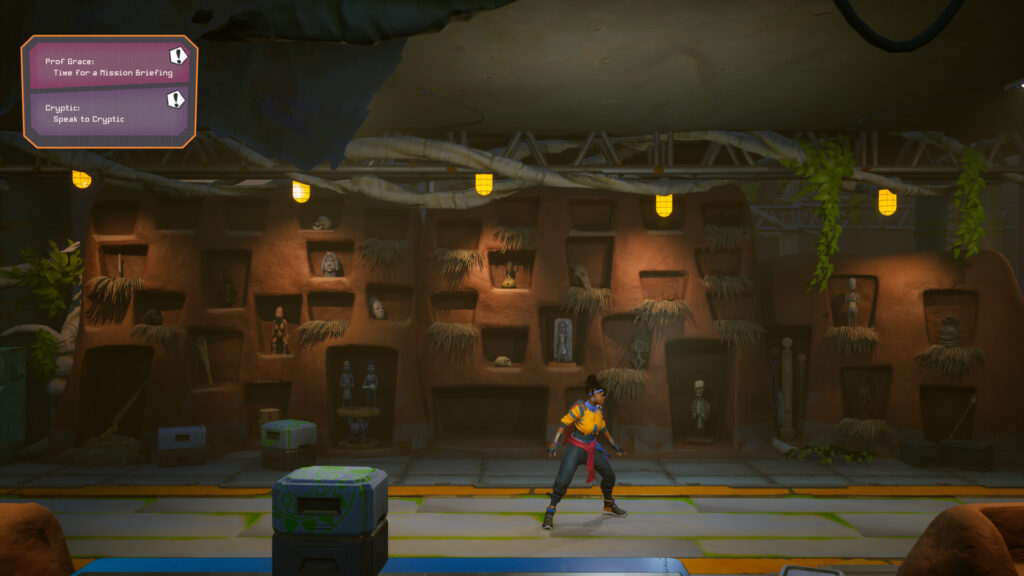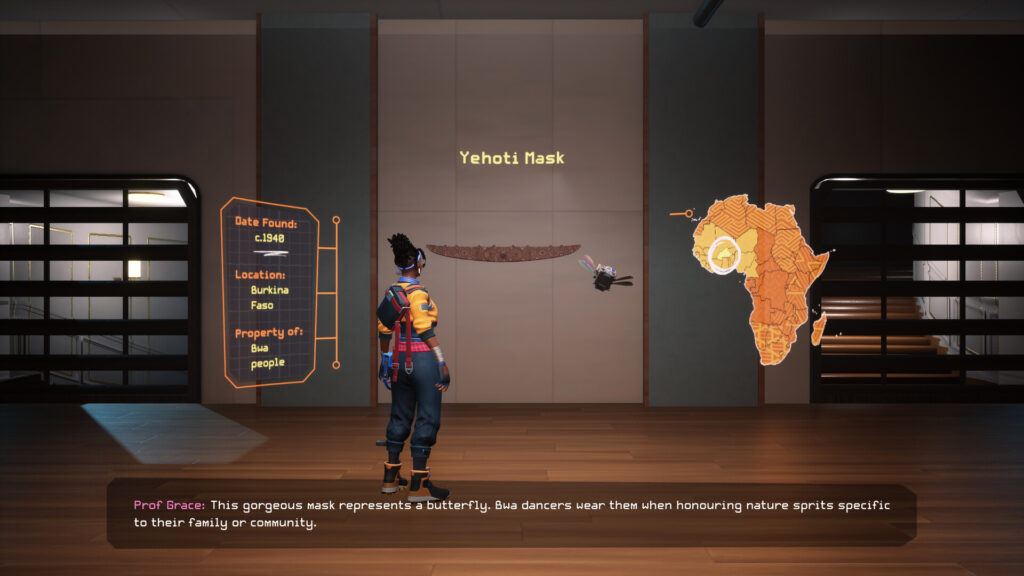The game Relooted, developed by the South African studio Nyamakop, offers a singular approach to the issue of cultural repatriation of African heritage. Set in the near future, the game is structured around a fictional narrative grounded in historical reality: the extraction, throughout the 19th and 20th centuries, of hundreds of African artifacts by colonial powers and their subsequent incorporation into Western museum collections.
The narrative premise introduces a fictional international treaty — the Transatlantic Return Accord — which promises to return these objects to their countries of origin. However, an amendment to the treaty stipulates that only artifacts currently on public display are subject to repatriation. In response, museums begin to withhold from exhibition those items they do not intend to return, effectively concealing them from public view. Within this context, the game’s protagonists — characters from various African countries — organize covert operations to recover the artifacts and return them to their respective communities.
The game’s mechanics combine platforming, puzzle-solving, and strategic planning. Its aesthetic is shaped by African futurism, a distinct approach from Afrofuturism in that it is grounded in real African geographies and cultures rather than a generalized fictional universe. Each character is designed based on specific cultural references, including clothing, accents, and regional visual elements. The development team sought, whenever possible, to ensure authentic representation, including the recruitment of voice actors from the corresponding countries.

A central feature of Relooted is the inclusion of real artifacts as the basis for the objects to be recovered within the game. These items were modeled in 3D from available images and descriptions — though in many cases, documentation was limited. One prominent example is a ceremonial Kenyan drum, believed destroyed for decades, but later found in storage at the British Museum. The inclusion of such items provides players with access to concise historical and cultural descriptions.
Conceptually, Relooted does not treat repatriation as a symbolic gesture, but rather as an active process of cultural restoration. By placing the recovery of artifacts at the core of the game’s action, it articulates — albeit fictionally — a critique of the Western museum system and the ongoing tensions surrounding the restitution of objects taken during colonial rule.
It is, therefore, a compelling example of how video games can be mobilized to engage with complex issues related to memory, history, and cultural justice.

